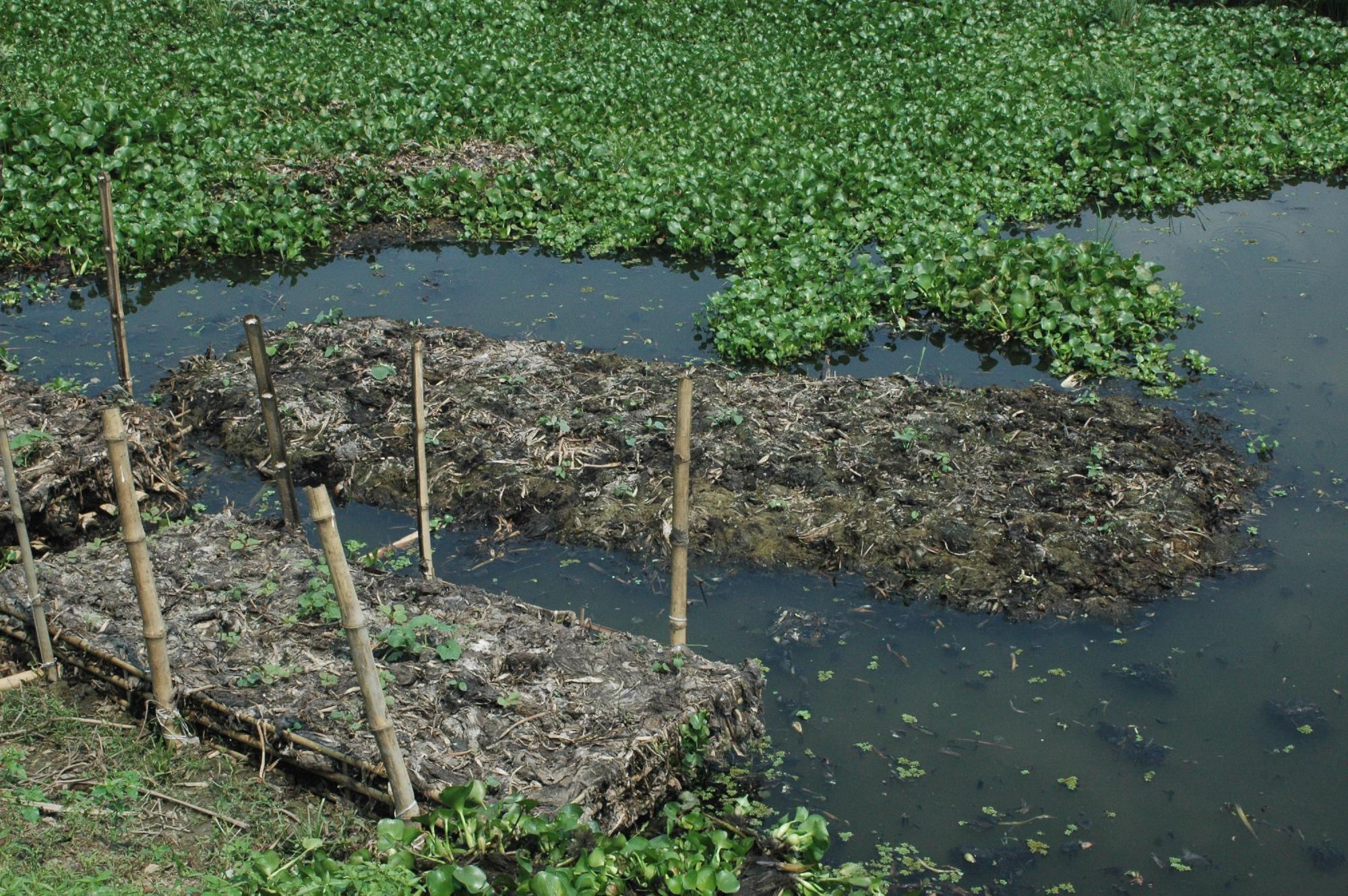Apr 1 2021
A new study has identified that the floating gardens of Bangladesh, set up to grow food crops during flood seasons, could be a sustainable solution for regions of the world vulnerable to flooding caused by climate change.
 The floating gardens of Bangladesh could offer a roadmap for sustainable agriculture as the climate changes, a new study shows. Image Credit: Aarjan Dixit, World Resources Institute.
The floating gardens of Bangladesh could offer a roadmap for sustainable agriculture as the climate changes, a new study shows. Image Credit: Aarjan Dixit, World Resources Institute.
Published recently in the Journal of Agriculture, Food and Environment, the study proposes that floating gardens might not just bring down food insecurity but also offer income for rural households in flood-prone parts of Bangladesh.
We are focused here on adaptive change for people who are victims of climate change, but who did not cause climate change. There’s no ambiguity about it: Bangladesh didn’t cause the carbon problem, and yet it is already experiencing the effects of climate change.
Craig Jenkins, Study Co-Author and Academy Professor Emeritus of Sociology, The Ohio State University
The floating gardens of Bangladesh were started several hundred years ago. The gardens are built using native plants that float on the rivers—conventionally, water hyacinths—and work virtually like rafts that rise and fall along with the waters.
Traditionally, they served the purpose of continuous growth of food crops during rainy seasons when rivers were filled with water.
The plants are layer about three feet deep by the farmers, or their families. This forms a kind of raised-bed gardens floating in the water. Then, vegetables are planted on the rafts.
The decomposition of the raft-plants leads to the release of nutrients, which help feed the vegetable plants. The vegetable plants essentially include spinach, okra, eggplant and certain gourds. At times, spices such as ginger and turmeric are also grown.
Floating gardens can also be found in some parts of Cambodia, Myanmar, and India. Bangladesh’s floating gardens have been named a Globally Important Agricultural Heritage System by the United Nations Food and Agricultural Organization.
However, with the volume of water in those rivers affected by climate change—resulting in extreme highs and floods, as well as extreme lows and droughts—the floating gardens have turned into a means for rural farmers to continue the production of food even during unpredictable weather.
Climate change elevates weather extremes and the intensity of flooding, as well as droughts.
The team intended to know whether the floating gardens of Bangladesh could be a sustainable farming practice with climate change continuing to cause floods and droughts, as well as to verify whether the gardens ensure improved food security to individual households.
They’ve got to be able to grow specific crops that can survive with minimal soil. And in Bangladesh, a lot of small farmers that had typically relied on rice crops are moving away from those because of the effects of climate change and better returns from alternative crops.
Craig Jenkins, Study Co-Author and Academy Professor Emeritus of Sociology, The Ohio State University
Jenkins is also a research scientist and former director of the Ohio State Mershon Center for International Security Studies.
As part of this study, the team interviewed farming families using floating gardens and collected solid proof that floating gardens offer stability, not only in terms of the amount of food available for rural populations but also with respect to the income of a farming family, regardless of the instability caused by a changing climate.
The researchers discovered that farmers essentially use hybrid seeds, which must be repurchased year after year, to cultivate an extensive range of vegetables on the floating gardens.
The gardens are vulnerable to pests, and thus the farmers have to spend some money on both pesticides and fertilizers. However, they found that despite those expenses, benefits surpassed the costs incurred.
In general, the team found that entire families work on the gardens: Children, women, and the elderly grow seedlings and gather aquatic plants to set up the gardens. Men grow the gardens and safeguard them from raiders. A few families also farm fish in the waters close to their floating gardens.
One farmer informed the researchers that he earns nearly four times as much money from the gardens as from conventional rice paddies.
Yet, the researchers identified that the system could be improved further. Farmers usually avail high interest loans to bear for the investment costs of setting up the beds and stocking them with plants. They found that loans of lower interest from responsible government or non-governmental organizations could ease out that trouble.
Journal Reference:
Pyka, L. M., et al. (2021) Floating gardening in coastal Bangladesh: Evidence of sustainable farming for food security under climate change. Journal of Agriculture, Food and Environment. doi.org/10.47440/JAFE.2020.1424.